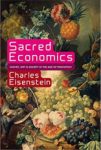Page 1 Page 2
I became a nurse at age 21. When people asked me why, I would say, “Well, my mother was a nurse.” But that’s not really what drew me. I was pulled to work in the health field because of concerns about my own health.
I didn’t have words for it then, 10 years before my first MS symptoms, but I think I was aware on some level that my body wasn’t quite right. I went into the health field to try to gain control over my health-related anxiety. I’m still in the field as a writer and educator. I have made my anxieties my career.
This attempt to gain control by becoming what one fears is common. Thousands of doctors and nurses share my story. Psychologists may be worse. Sigmund Freud’s daughter Anna, herself a prominent psychoanalyst, once said, “The most sophisticated defense mechanism I ever encountered was becoming a psychotherapist.”
Psychologist Robert Epstein, PhD, wrote in Psychology Today, “Mental health professionals are, in general, a fairly crazy lot…Maybe people enter the mental health field because they have a history of psychological difficulties. Perhaps they’re trying to understand or overcome their own problems.”
These troubled shrinks can cause problems for patients. It can be hard for them to separate their clients’ problems from their own.
If people with health problems go into medicine, and crazy people go into psychology, who do you think goes into finance? Who are our bankers and hedge fund managers? According to Charles Eisenstein, author of Sacred Economics, they tend to be people with a highly developed sense of scarcity.
Financiers think the world is a dangerous place, and they are trying to gain a sense of control by increasing material wealth. They can’t succeed, because what they’re really missing is connection to other people and to nature.
“Beyond basic survival needs, what need is more important to a human than to be touched, held, seen, heard, and loved?” Eisenstein asks. “How much money, how much power, how much control over other people do you need to meet the need for connection? How much is enough? No amount is ever enough.” 
Having more money can actually increase their sense of scarcity, because a life focused on money drives them away from what they really need, which is connection.
The Boston College Center for Wealth and Philanthropy surveyed families with net worth over $25 million (average $78 million.) They were asked, “Do you feel financially secure?” Most answered No. When asked how much they would need to feel secure, they gave answers averaging about 25% more than they had.
Obviously, if $32 million doesn’t make you secure, $40 million won’t either. It’s a bottomless need. One fabulously wealthy, self-described “devout Christian,” said he wouldn’t feel financially secure until he had $1 billion in his accounts. How’s that for trust in God?
This insecurity may be what drives vulture fund managers to extort loan repayments from poor countries, forcing them to close schools and letting people starve. It might be what propels CEOs to wake up in the morning and go to work thinking of ways to cut workers’ pay. They need that money for themselves.
They’re not happy about their wealth in most cases. An Atlantic Monthly article on the BC study reported, “The respondents turn out to be a generally dissatisfied lot, whose money has contributed to deep anxieties involving love, work, and family.” There are even support groups for rich people coping with the stresses of wealth.
Sociologist Paul G. Scervish, a former Jesuit priest and one of the directors of the BC study, found that, to his surprise, rich people aren’t generally worse human beings than the rest of us. “I realized good and evil are equally distributed across the economic spectrum,” he says, “and not particular to the wealthy or the poor.”
It’s not the rich people. It’s the system; it’s the culture of scarcity and separation. The fear of scarcity can deform any of us if we let it.
So then, if having health problems drives you into medicine, and having a profound sense of scarcity drives one to become a banker, what pushes people into being cops? It must be anxiety over control, and in hundreds of videos you can see on Youtube, police demonstrate their nearly bottomless need for control. They beat, threaten and shoot people who a viewer sees as no threat.
The cops’ highly developed need for control, exacerbated by their training, can make them see a drunken homeless man lying on the sidewalk as a deadly threat. These are not the people we want walking around our streets carrying guns.
Similarly with people who choose the military – not necessarily the grunt recruits seeking funding for their education, but those who climb the ranks and those who run things. They see the world as a terribly dangerous place and work constantly to gain a sense of control over it.
These fears are not unique to militarists or cops. Our society teaches us, trains us, and we come to believe that we are separate beings in a heartless world with no one to depend on but ourselves. If we have experienced losses or trauma or neglect as children, that will add to our need for control.
Seeing the world like that, anyone would tend to feel unsafe and needy. The generals and Secretaries of Defense are just the extreme cases. I would say these scared children are not the people we want running our military. And people traumatized by military service should not become cops, although they are often recruited for those jobs.
The search for control is taking some terrible forms these days. We have democracies turning into police states. Neighborhood cops are dressing like storm troopers from Star Wars.
Our government wages war after war, trying to suppress threats that exist mostly in their own mind. They use war as their only tool to deal with political problems that cause unrest.
I used to think they did this to increase the wealth of military contractors, and that may be part of the motivation. But they also seem to have a bottomless fear, and they’re acting it out. If they don’t face any threats, they create new ones. If the whole world comes to hate them, that just fulfills what they already believe to be true.
It is kind of like an abused child or battered woman getting into abusive relationships to recreate their trauma in an effort to control it. The tragedy of this process can be seen in the state of Israel. Founded by people with memories of profound violence and oppression at the hands of the Nazis and other Europeans for almost 200 years, Israel seems to have an endless need to recreate their trauma and assert control.
They constantly attack their neighbors, grabbing more land, building apartheid walls, believing nobody will leave them in peace no matter what they do. As a result, they and their American allies have set the entire region on fire and led to the deaths and displacement of millions.
None of it is rational or just, but they feel endangered. Their perceived lack of control trumps all their moral and rational sense.
This is what comes of living in separation. I don’t believe any of us are immune to this dynamic. At the personal, social or international level, our sense of being separate individuals adrift in an uncaring world drives us to seek control, when what we usually need is connection. How can we change this situation?
Eisenstein says we need a thorough transformation of our society, our way of seeing the world, and ourselves. He says this is happening now. He says we are in transition from The Story of Separation to a new Story of Interbeing, where we recognize that we are all intimately connected. “Fundamentally we are one being looking out at the world through different sets of eyes,” he writes. When that understanding becomes widespread, it will lead to a more beautiful world.
Attaining the world of Interbeing, however, would involve finding ways to make everyone feel secure and connected. To be honest, I don’t see a way to do that for the Dick Cheneys, Goldman Sachs, Donald Trumps, Hillary Clintons and Benjamin Netanyahus of the world.
Dr. Gabor Maté, author of “In the Realm of Hungry Ghosts,” was once asked what we could do to help such people reclaim their humanity. He replied that it would be easy to do. “We could make them feel unconditionally loved,” he said. “Unfortunately, I see no way to get close enough to them to do it.”
But we can do it for ourselves. We can do it for each other. When we feel loved, we won’t be as desperate for control. Perhaps feelings of connection, what Eisenstein calls “interbeing” will spread. At least we’ll feel better while we try.
———————–
Charles Eisenstein’s books include Sacred Economics, and The More Beautiful World Our Hearts Know is Possible. Check them out.
Book 3 in The Inn by the Healing Path series, the Book of Nonjudgment, will be out August 10. If you haven’t seen Books 1 and 2 yet, they’re available at all e-book retailers.
Page 1 Page 2

Thoughts on inward facing control vs. outward facing control? Or control vs. mastery?
There is much to think about here. Generally, the more someone tries to control others, the worse the outcome. It is true on a micro level and it is definitely true on a macro level. My late husband, who was Jewish, would agree with your analysis of Israel. It pained him greatly to see the government of Israel as close collaborators with the apartheid regime of South Africa.
I was emotionally, physically, and sexually abused as a child and my childhood trauma has played a major role in my quest to control how I am treated. No surprise, I tend to hold grudge against people who do not treat me or others in a kind and respectful manner. As much as possible, I have tried to channel that mistrust and drive to control into participation in fights for social justice. I may not live to see a world that operates on the basis of dignity, respect, and justice, but perhaps my efforts may play a small role in making this world a better place for future generations.